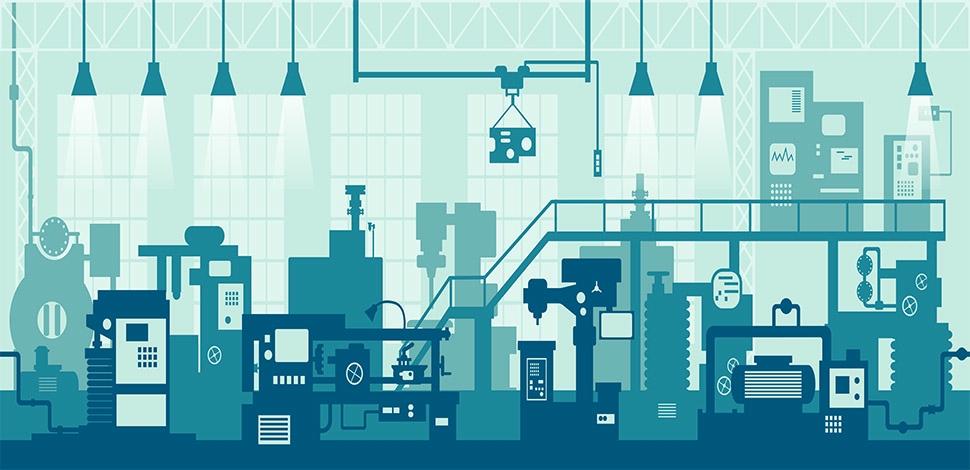ul. Strzegomska 2-4
53-611 Wrocław
NIP 8992786490
KRS 0000608120
REGON 363987723
Global4Net Sp. z o. o.
+48 71 358 41 00
© 2009 – Global4Net. All Rights Reserved.

Technological development around the world forces producers and service companies to constantly innovate on their production lines. The work performed on them must be fast and efficient. Employee and production potential must be fully utilized to meet demand and stay on the market with strong competition.
In addition to utilizing the potential, there is another variable that should be taken into account. Technological development also means dynamic changes in the type of production required. A flexible production system plans and even takes for granted that the same production line and the same machines will have to change their profile.
Regardless of whether these changes are foreseen or not, the production line’s efficiency must remain high. FMS is a compromise between automatic machines and manual machine tools. The entire production line is managed towards maximum versatility and efficiency at the same time. For this purpose, computer control and operation are used. The system includes computers and controllers responsible for monitoring. Next are the devices used for the production itself, transport works as well as local, central and inter-operational warehouses.
By using a flexible production system it is possible to use the full potential of your machines. The disadvantages include the high initial cost and a lot of planning work. However, greater efficiency in the use of your machines and labor force will reduce the long-term costs of maintaining the production line in relation to its productivity. The second advantage is the preparation of production for the constantly changing type and quantity of orders, which in turn result from market requirements. Shortening the production time of new elements allows you to start another batch faster. However, the planned flexibility of the production line will make it possible to increase the product range.
A flexible production system dates back to the 1950s. The American engineer and inventor Jerome H. Lemelson, who already has several patents, invented a machine-based system that was able to weld, rivet, transport and inspect finished products at the same time. It was an innovative concept, but at first it did not work. Refined production lines, based on his idea, debuted only in the 1960s and flourished in the 1970s in both the United States and Europe.
Despite the long life, this solution is still considered modern and its concept improved. The first systems were based on Molins 24. It was controlled by IBM 1130, a 16-bit binary computer, with a 1 MB disk on which the entire operating system was located. The Molinsa system consisted of machine tools and a tool magazine. It was a prototype intended for testing and did not live up to international success.
Today, among others, from the German TRAUB system called TNA 480 + FMS2. It is a lathe with machine tools, conveyors, tool holders, loading station as well as magazines and pallet exchangers. Their prices are not high. However, many of them on the secondary market are in poor condition or inefficiency. These machines are over twenty years old, and yet they are still used throughout Europe.
Whenever flexible systems are described, advantages and disadvantages are mentioned. In addition to the high initialization cost, keep it in mind. These machines, according to FMS assumptions, should work as much as possible, preferably constantly. They are therefore doomed to continuous operation, which means regular servicing. Much also depends on the knowledge and experience of technical staff. Lack of proper system maintenance and diagnostics will cause malfunctions and faster wear. Planning a production line is equally important because poor implementation of technological processes or program errors will negatively affect the reliability of the entire system.
However, a well-planned and invested flexible system should be profitable by its very nature. Above all, however, it will allow you to make the most of your production line productivity and employee potential. This will speed up the production of products, and the company will be able to expand its range and develop its competences.
Write to us




